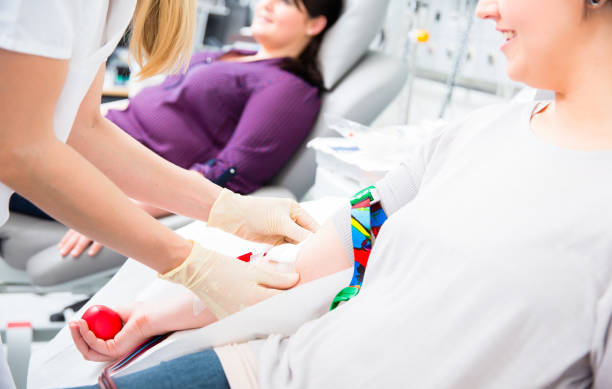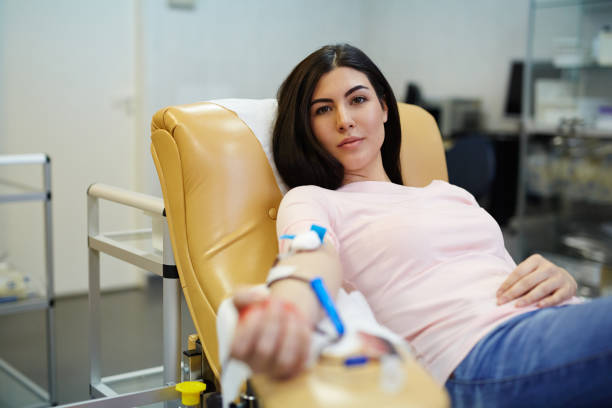Understanding Egg Donation: A Comprehensive Guide
Introduction to Egg Donation
Egg donation is a remarkable process that enables women to help others achieve their dreams of parenthood. This procedure involves a woman, known as an egg donor, voluntarily offering her eggs to be used in assisted reproductive technologies, such as in vitro fertilization (IVF). Egg donation is a generous act that can bring immense joy to individuals and couples struggling with infertility. In this guide, we will explore the various aspects of egg donation, from the selection process to the medical procedures involved, and the emotional and ethical considerations that accompany this journey.
The Importance of Egg Donation
Infertility affects millions of individuals and couples worldwide, often causing emotional distress and a sense of hopelessness. Egg donation offers a ray of hope to those who are unable to conceive using their own eggs due to medical conditions, age-related factors, or genetic disorders. By donating eggs, women provide an invaluable gift, allowing recipients to experience the joys of pregnancy and childbirth. The importance of egg donation cannot be overstated, as it not only fulfills the dreams of parenthood but also contributes to advancing scientific research in reproductive medicine.
Who Can Become an Egg Donor?
Becoming an egg donor is a highly selective process that ensures the health and suitability of both the donor and the recipient. Generally, egg donors are healthy women between the ages of 21 and 35. They undergo a thorough medical and psychological screening to assess their physical and mental well-being. The screening process includes a detailed medical history, physical examinations, blood tests, genetic testing, and psychological evaluations. Potential donors must also meet certain lifestyle criteria, such as being non-smokers and having a healthy body mass index (BMI). The rigorous selection process ensures the safety and success of the egg donation procedure.
The Egg Donation Process
The process of egg donation involves several steps, each carefully designed to maximize the chances of a successful outcome. Here is a detailed overview of the egg donation process:
Initial Consultation and Screening
The first step in the egg donation journey is an initial consultation with a fertility specialist. During this meeting, the potential donor learns about the process, its implications, and the commitment required. If the donor decides to proceed, she undergoes a comprehensive screening to assess her overall health, fertility potential, and genetic background.
Ovarian Stimulation
Once the donor is deemed suitable, she begins the ovarian stimulation phase. This involves administering hormonal medications to stimulate the ovaries to produce multiple eggs in a single menstrual cycle. The donor self-administers these medications through injections, typically over a period of 10 to 14 days. Regular monitoring through blood tests and ultrasound examinations ensures the donor's response to the medication is optimal and safe.
Egg Retrieval
When the donor's eggs are mature and ready for retrieval, a minor surgical procedure called transvaginal ultrasound aspiration is performed. This procedure is usually done under sedation or anesthesia to ensure the donor's comfort. Using a thin needle guided by ultrasound, the eggs are carefully retrieved from the ovarian follicles. The entire process takes about 20 to 30 minutes, and the donor can usually go home the same day.
Post-Retrieval Recovery
After the egg retrieval, the donor may experience mild discomfort, cramping, or bloating, similar to menstrual symptoms. These side effects are generally short-lived and can be managed with over-the-counter pain medication. The donor's body will naturally resume its normal menstrual cycle within a few weeks.
Egg Fertilization and Embryo Transfer
The retrieved eggs are then fertilized with sperm in a laboratory setting, creating embryos. The resulting embryos are monitored for their development, and the most viable ones are selected for transfer into the recipient's uterus. The recipient undergoes a separate medical protocol to prepare her uterus for embryo implantation. If successful, this leads to pregnancy and, eventually, the birth of a healthy baby.
Emotional and Psychological Aspects of Egg Donation
Egg donation is a profound and emotionally significant experience for both the donor and the recipient. For donors, the decision to donate eggs can bring a deep sense of fulfillment and pride, knowing they have helped create a family. However, it is also essential for donors to consider the emotional implications, such as potential attachment to the donated eggs and the possible future curiosity about any resulting children. Psychological counseling is often provided to help donors navigate these feelings and ensure they are emotionally prepared for the process.
Recipients, on the other hand, experience a wide range of emotions, from hope and excitement to anxiety and uncertainty. The emotional journey of recipients can be challenging, as they grapple with the complexities of using donor eggs to conceive. Support from family, friends, and mental health professionals is crucial to help recipients manage these emotions and maintain a positive outlook throughout the process.
Ethical Considerations in Egg Donation
Egg donation raises several ethical considerations that must be carefully addressed to ensure the well-being of all parties involved. These considerations include:
Informed Consent
Informed consent is a fundamental ethical principle in egg donation. Donors must be fully aware of the medical procedures, risks, and potential long-term implications of donating their eggs. They should have the opportunity to ask questions and receive clear, comprehensive information before giving their consent.
Anonymity and Confidentiality
The question of anonymity is another critical ethical issue in egg donation. Some donors and recipients prefer to remain anonymous to protect their privacy, while others may choose to have open communication. Fertility clinics must respect the preferences of both parties and ensure confidentiality throughout the process.
Compensation
The issue of compensation for egg donors is a topic of ethical debate. While donors often receive financial compensation for their time and effort, it is essential to ensure that the compensation does not become coercive or exploitative. Ethical guidelines and regulations are in place to maintain a balance between fair compensation and the altruistic nature of egg donation.
Long-Term Follow-Up
Long-term follow-up is an important aspect of ethical egg donation. Donors should have access to medical and psychological support after the donation process to monitor their health and address any concerns that may arise. Additionally, recipients and any resulting children may benefit from access to non-identifying medical information about the donor for future health considerations.
Legal Framework and Regulations
Egg donation is regulated by laws and guidelines that vary from country to country. These regulations ensure the safety, ethical conduct, and protection of all parties involved. Key legal aspects of egg donation include:
Eligibility and Screening
Regulations typically outline the eligibility criteria for egg donors and the mandatory screening procedures to ensure the health and safety of both donors and recipients. These criteria help maintain high standards of care and minimize the risk of complications.
Donor Compensation
Laws regarding donor compensation vary widely. Some countries have strict regulations on the amount and nature of compensation, while others allow more flexibility. The goal is to prevent financial incentives from compromising the ethical principles of egg donation.
Anonymity and Disclosure
Legal frameworks address the issue of anonymity and the rights of donors, recipients, and any resulting children to access information about each other. These regulations balance privacy concerns with the potential need for medical or genetic information in the future.
Parental Rights
Legal agreements between donors and recipients clarify parental rights and responsibilities. In most cases, egg donors do not have legal parental rights or obligations toward any children born from their donated eggs. These agreements protect the interests of all parties and ensure clear boundaries.
The Impact of Egg Donation on Donors
The decision to donate eggs is a deeply personal one that can have a lasting impact on donors. While many donors find the experience rewarding, it is essential to consider the potential physical and emotional effects.
Physical Health
The physical impact of egg donation is generally minimal, with most donors recovering quickly after the retrieval procedure. However, there are risks associated with the use of hormonal medications and the surgical retrieval process. It is crucial for donors to be aware of these risks and to receive proper medical care and follow-up.
Emotional Well-Being
Egg donation can evoke a range of emotions, from satisfaction and pride to anxiety and uncertainty. Donors may wonder about the outcome of their donation and the well-being of any resulting children. Psychological counseling and support groups can help donors process these emotions and maintain their mental well-being.
Future Fertility
Research indicates that egg donation does not have a significant long-term impact on a donor's fertility. However, it is important for donors to discuss any concerns with their healthcare provider and to understand the potential risks and benefits.
Conclusion
Egg donation is a powerful and life-changing act that offers hope to individuals and couples struggling with infertility. It is a process that requires careful consideration, thorough medical and psychological screening, and a deep commitment from donors. By understanding the complexities and ethical considerations of egg donation, donors and recipients can embark on this journey with confidence and compassion. The gift of egg donation not only creates families but also advances the field of reproductive medicine, paving the way for future innovations and discoveries.




